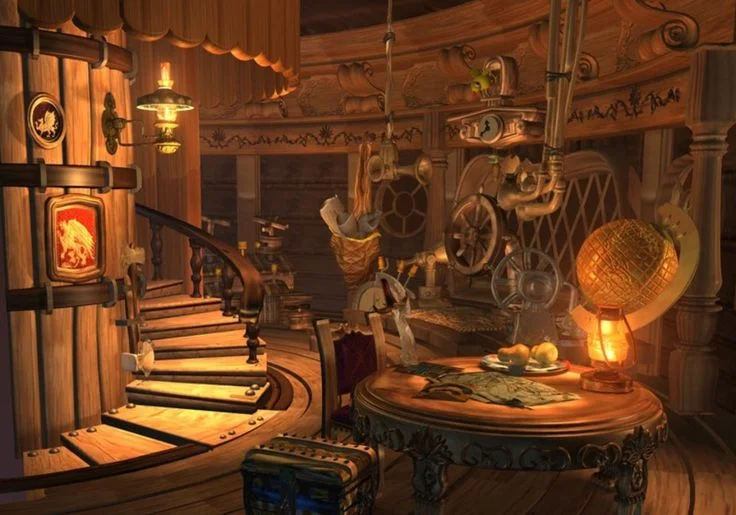Reader Requests: Character Progression
/Spork2k wrote:
"Do you evolve your characters through RP, or just have that character's personality static through the experiences?"
I will preface this discussion with the statement that in roleplay, I put the narrative as priority, which is not a universal stance. When I create a character, I have a sort of idea in mind for what purpose I want them to serve in conveying an enjoyable story, because ultimately that is what roleplay boils down to, storytelling. I like to refer to these character concepts as "archetypes", and more people follow this methodology than one might realize. Often, you will hear a player describing their characters by the context of characters in other works or settings, "My character, Uncle Iroh, is heavily influenced by Obi Wan Kenobi and tales of ancient sword masters", so on and so forth. What is actually happening here is a description of an archetype, in our provided example particularly we are discussing "the wizard", which I analyzed to death in an earlier post.
With this concept of character archetypes in mind, our question today is a matter of static and dynamic characters. My answer would be that I use both for different reasons, all according to the role I believe my character is playing in the narrative, and it is not constant. A character can be dynamic in one story and static in another, we see this in any medium with recurring characters, but it is especially common in television and comic books.
What are static and dynamic characters? A key element to any story is conflict, this can be physical, mental, spiritual, or any other variety, but you can't create a compelling story without it. Static versus dynamic describes the character's relationship between the conflict and the self. Simply put, the conflict changes a dynamic character on some philosophical or personal level, while a static character remains unchanged. This does not mean they come out completely unscathed or unphased, simply that the conflict does not alter their view of the world, or perhaps they die and are not given an opportunity to change. Some archetypes lend themselves to static behavior while others lend themselves to dynamic contemplation. The trick is in identifying what you are trying to demonstrate with the character.
Static behavior is often used to display stoicism, solid and unphased mentality. Does the conflict actually affect your character? Are they in the conflict to change the world, or is this just a job to them? Perhaps they are jaded, they have seen it all before, or they at least think they have. Perhaps they consider the problem trivial compared to other matters in their life. Dynamic characters typically see themselves in the conflict somehow, it's close to home, it's personal. Perhaps they have a presupposition that is challenged by the conflict or an unexpected ally. Someone close to them could be harmed, or perhaps something gives them hope where before there was none. In a long term character, you are typically going to play both of these roles at different times. Remember that every single little thing doesn't have to change your character. Sometimes things simply don't matter, or they weren't personal.
My advice to the curious is simply this. Do not ask "will this character change at all", but rather ask "will today's conflict change the character". Do not worry if the answer is "no", you do not want every interaction changing your character like some philosophically amorphous blob. If you put enough though into defining the character's motives, it will be an enjoyable exercise and I think you will find it rewarding.
This is Ma1function, signing off until next time, don't forget to leave any comments or questions on the forums at
http://rphq.enjin.com/forum/m/35146228/viewthread/26333901-ma1function-blog-comments-requests/page/1/post/last











![Almighty Allen [Featured Artist]](https://images.squarespace-cdn.com/content/v1/55e49864e4b01d0dc78ba129/1494016363924-BAS6WH35KFUSQOCCO4RR/X8YeVUb.jpg)

![Slain by Syrena [Featured Artist]](https://images.squarespace-cdn.com/content/v1/55e49864e4b01d0dc78ba129/1489542756189-19DYL4NJ7L1HWG9QJBC6/ss10.jpg)